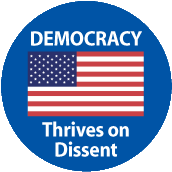| Academic freedom is a moral and legal concept expressing the conviction that the freedom of inquiry by faculty members is essential to the mission of the academy as well as the principles of academia and that scholars should have the freedom to teach or communicate ideas or facts (including those that are inconvenient to external political groups or to authorities) without fear of repression, job loss, or imprisonment. Proponents of academic freedom believe that the freedom of inquiry by students and faculty members is essential to the mission of the academy. |
Democracy Needs Dissenters, Critical Thinkers; but Academic freedom index Reveals Eroding Academic Freedom
 In recent years, we have seen many such examples of the government intimidating the scholars working in the knowledge sector into silence. While academic freedom is being challenged, defamation lawsuits are becoming tools of harassment.
In recent years, we have seen many such examples of the government intimidating the scholars working in the knowledge sector into silence. While academic freedom is being challenged, defamation lawsuits are becoming tools of harassment.
July 8.– In 2022, India’s academic freedom index was in the bottom 30% among 179 countries, according to an analysis by the V-Dem Institute. It flagged 22 countries, including India, China, the US, and Mexico, where institutes recorded a slide in academic freedom over the past decade.
Democracy is not merely about protecting voting rights and conducting elections or maintaining the rule of law. 
As part of the assessment, five indicators were used by the institutes. These include the freedom to research and teach, freedom to disseminate information, and freedom of academic and cultural expression. The indicators also included encouraging a tradition of provocative thinking, controversial views, and non-conformity – which are conditions for sustaining a diverse and inclusive society.
Academic freedom refers to the principle that scholars and researchers should have the freedom to pursue their research and express their findings without interference, censorship, or retaliation from the government, private institutions, or other external entities.
(...)
[ Full text ]